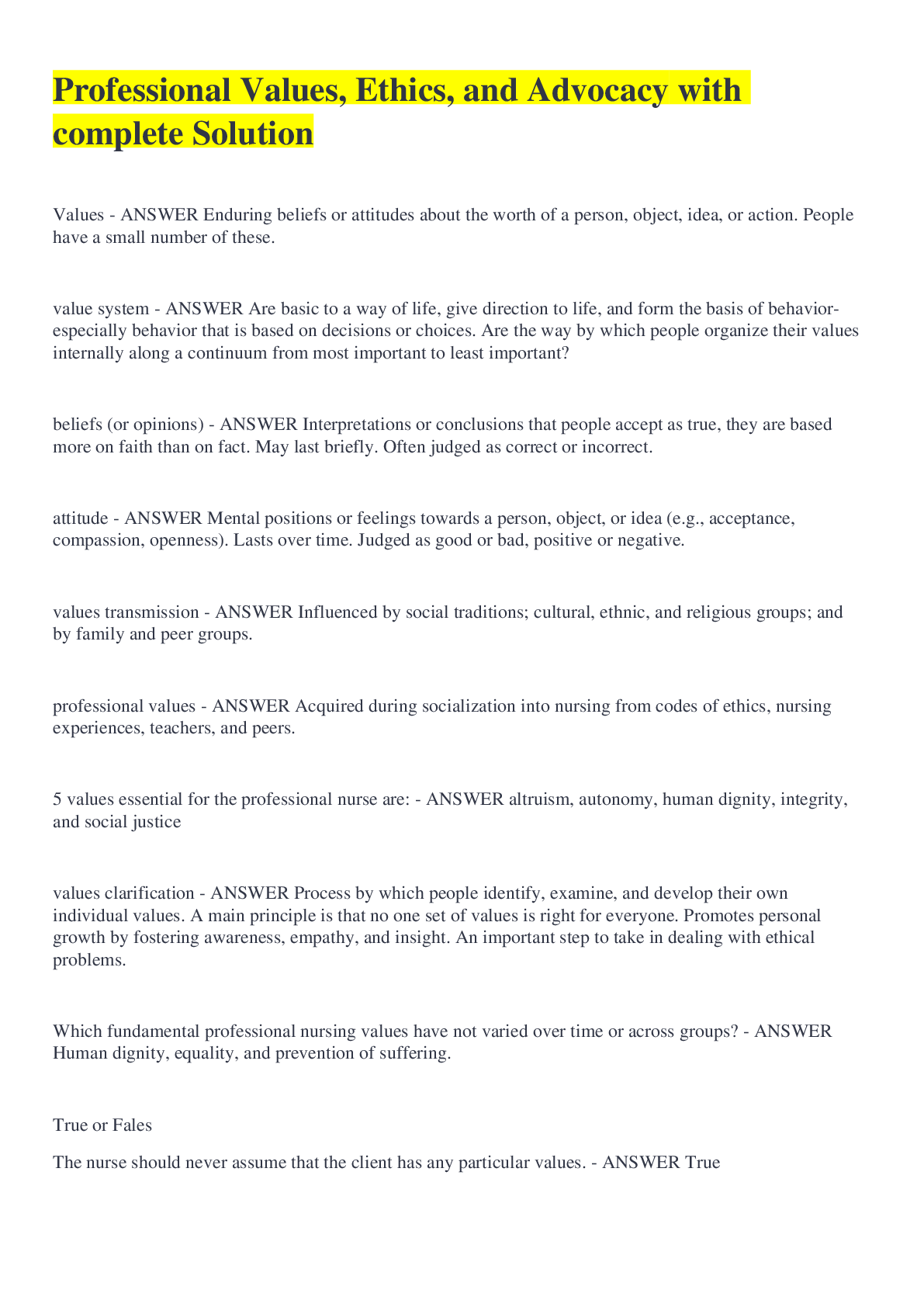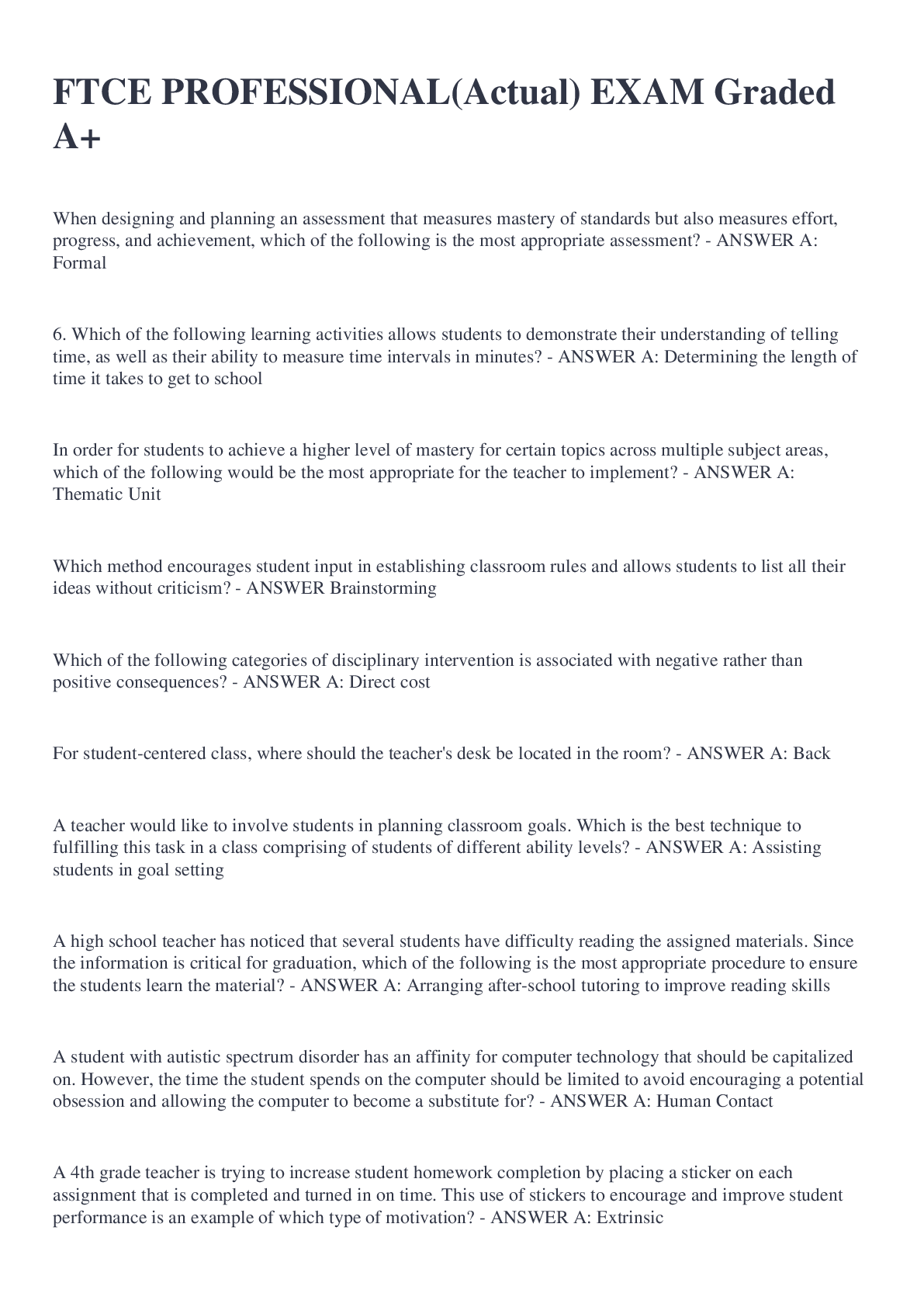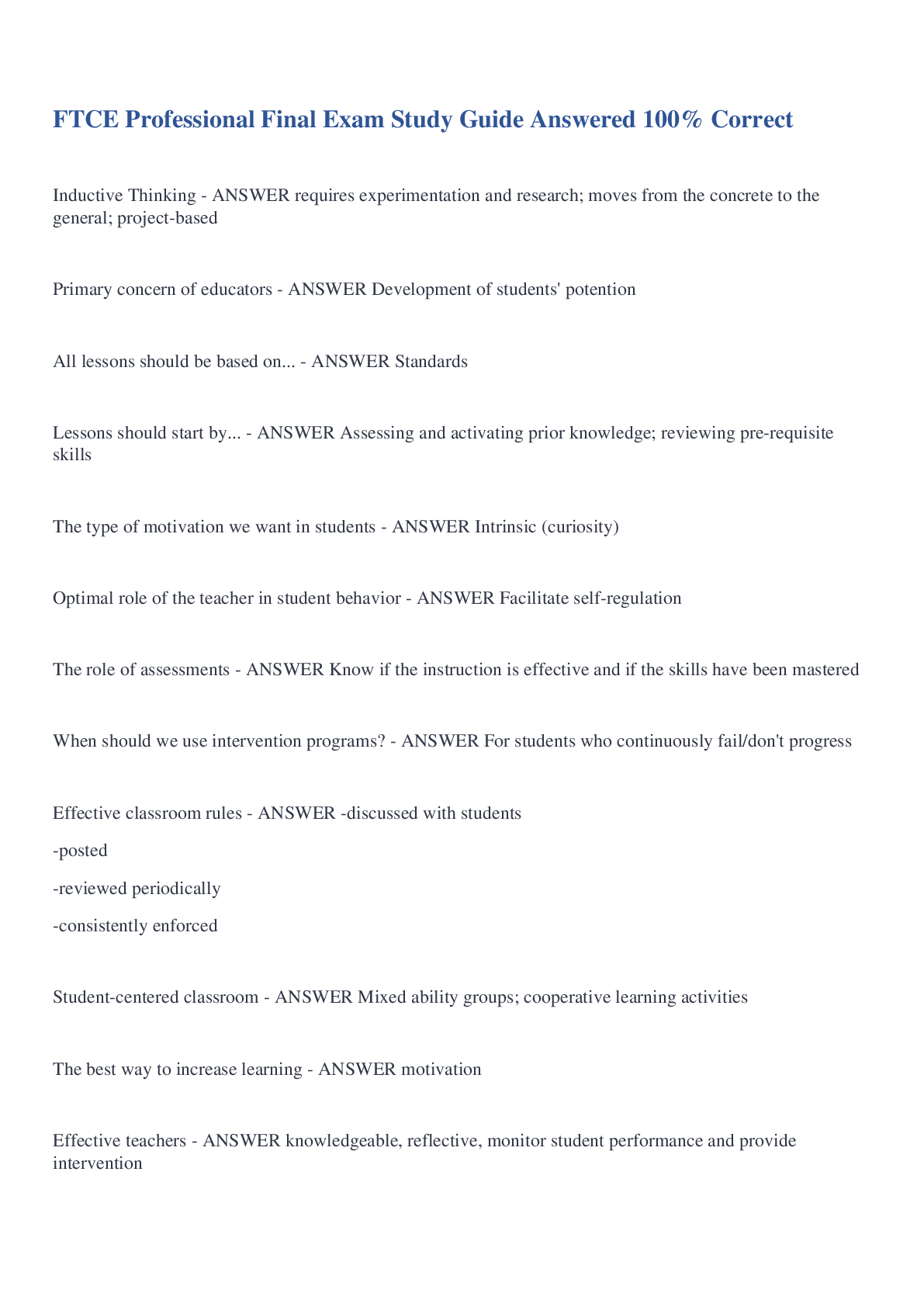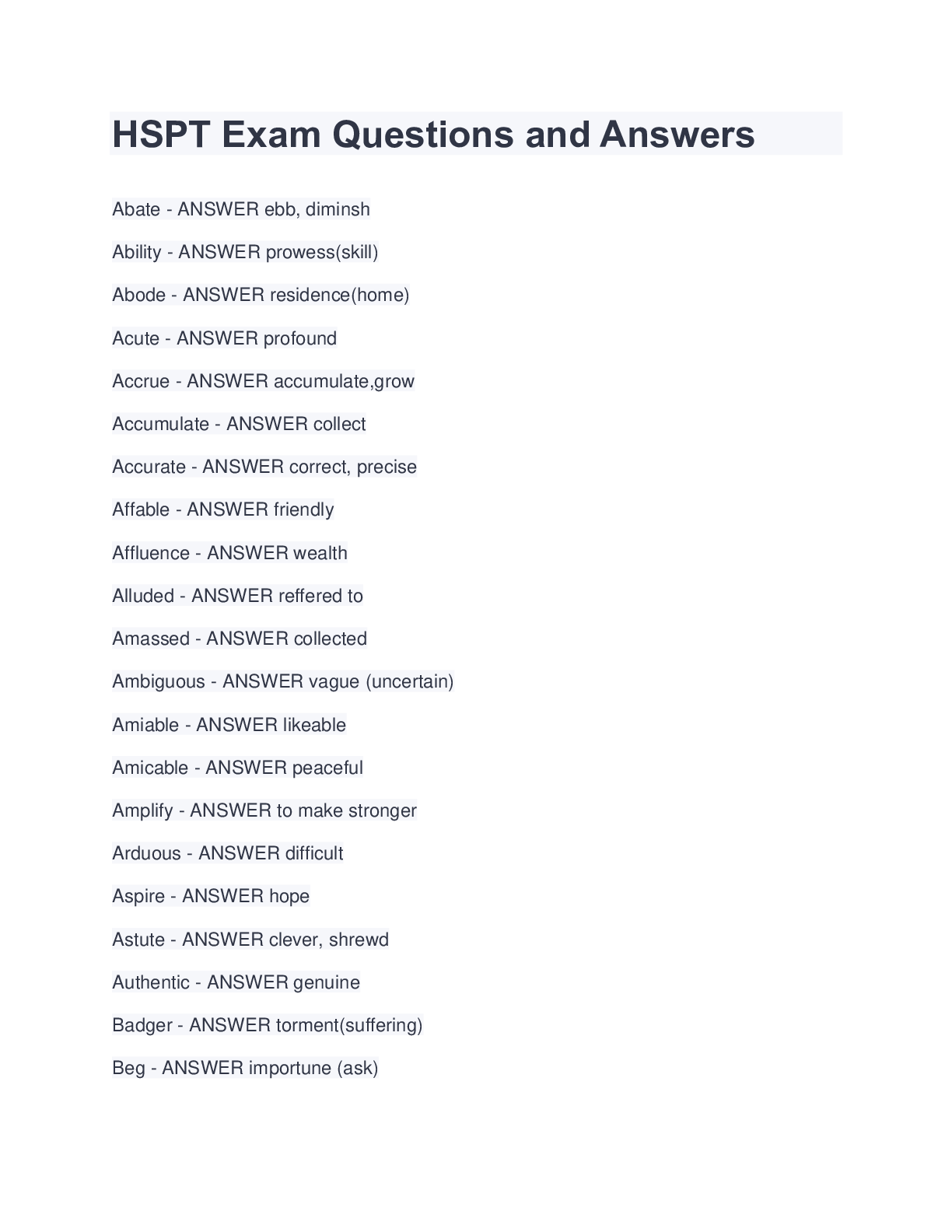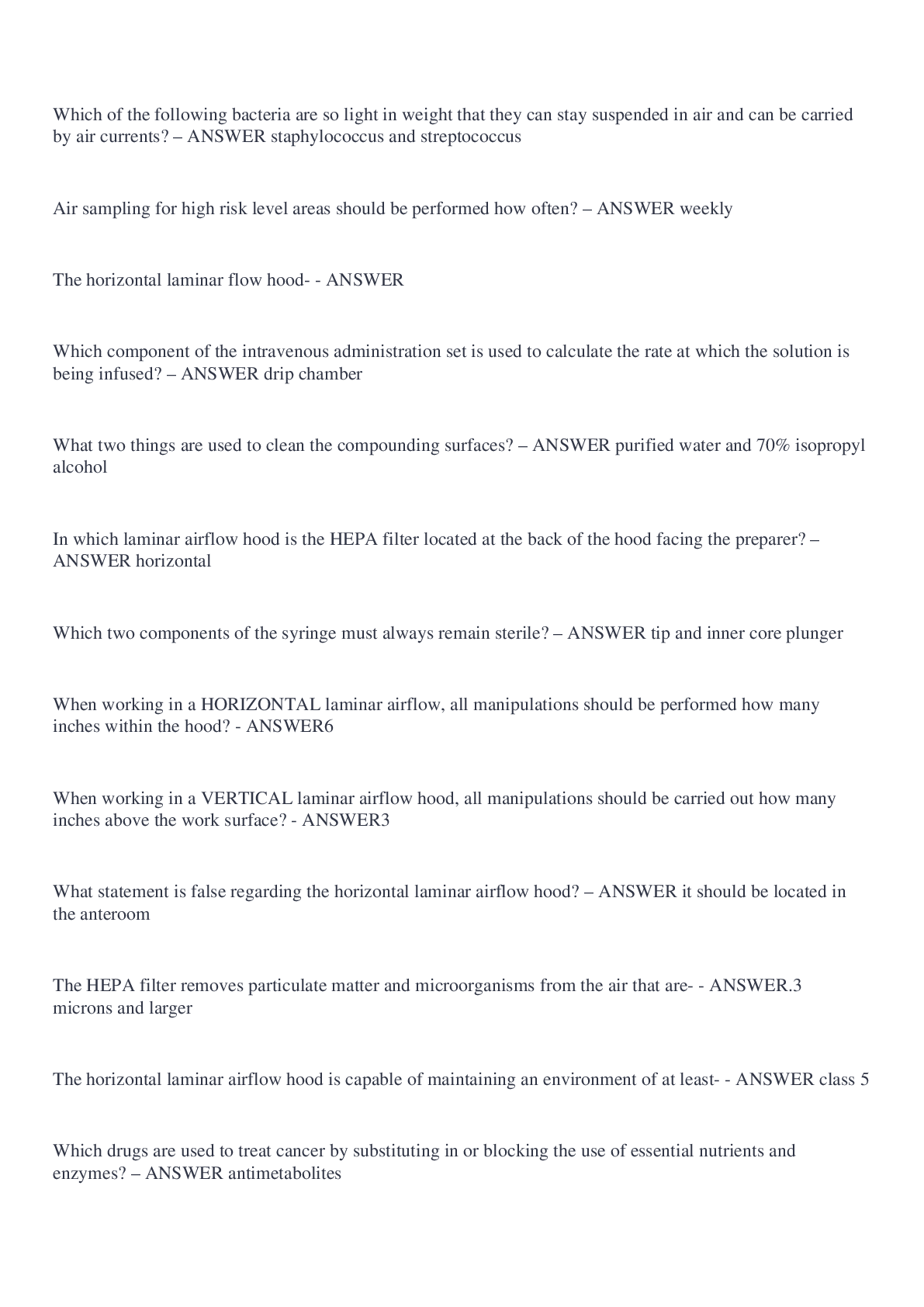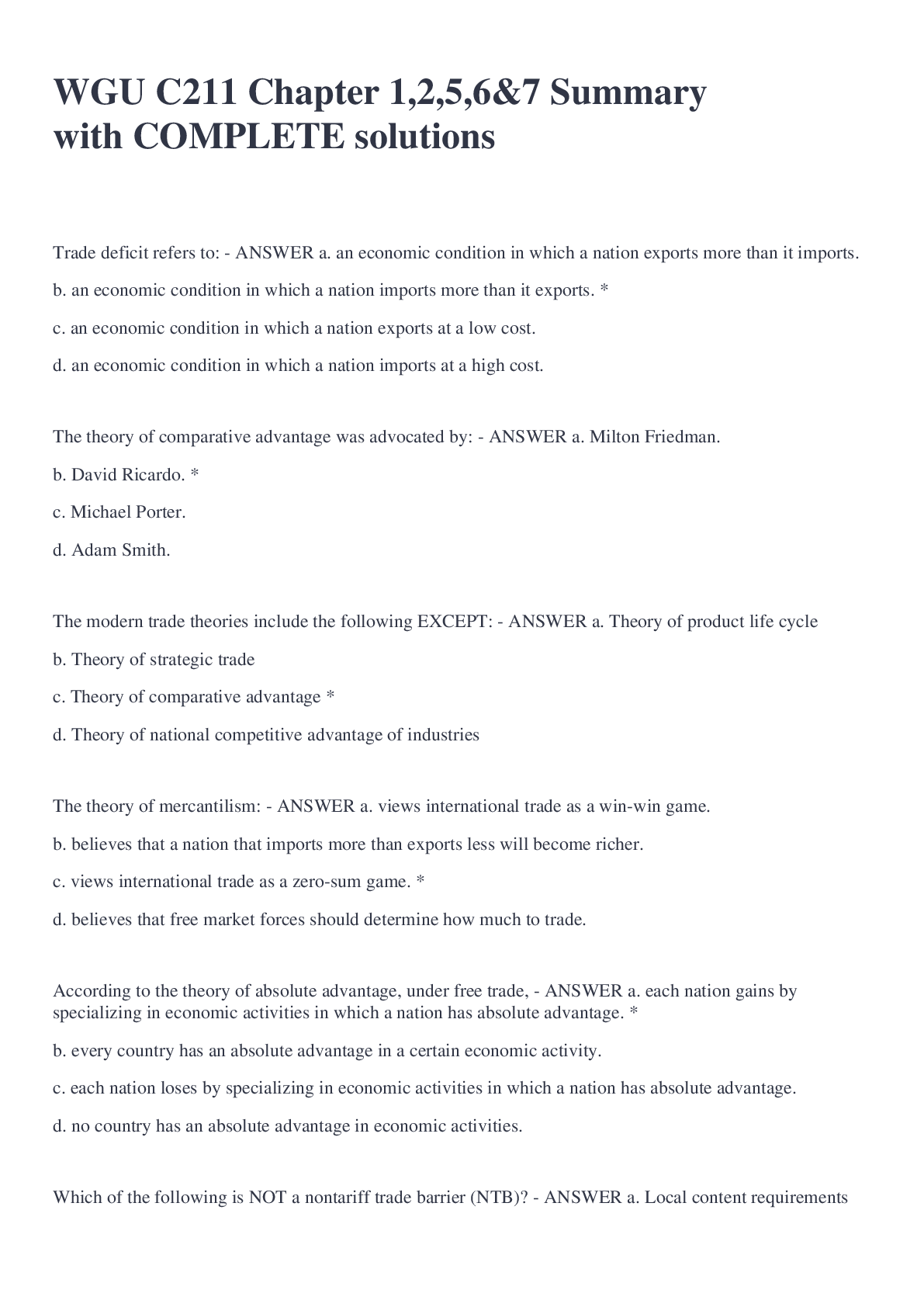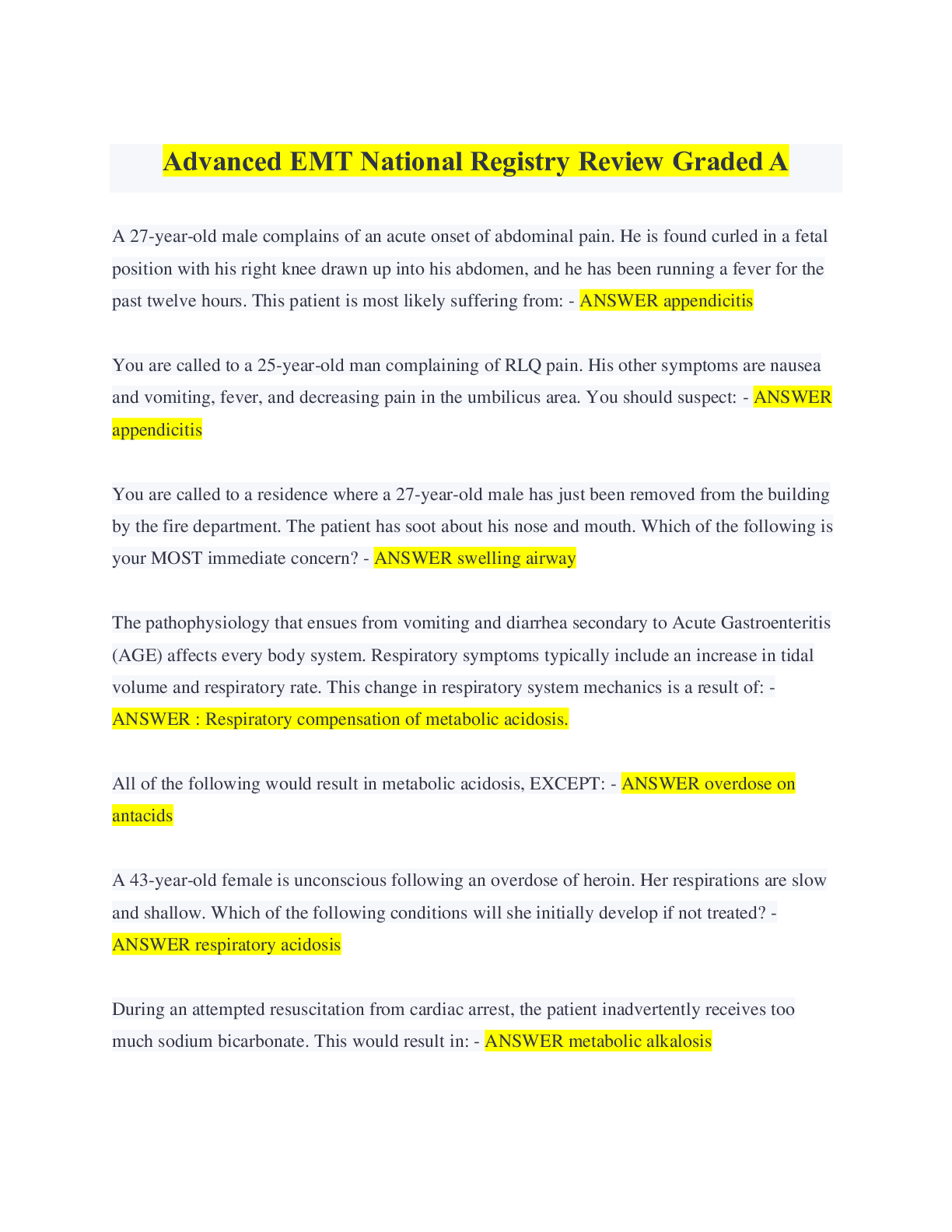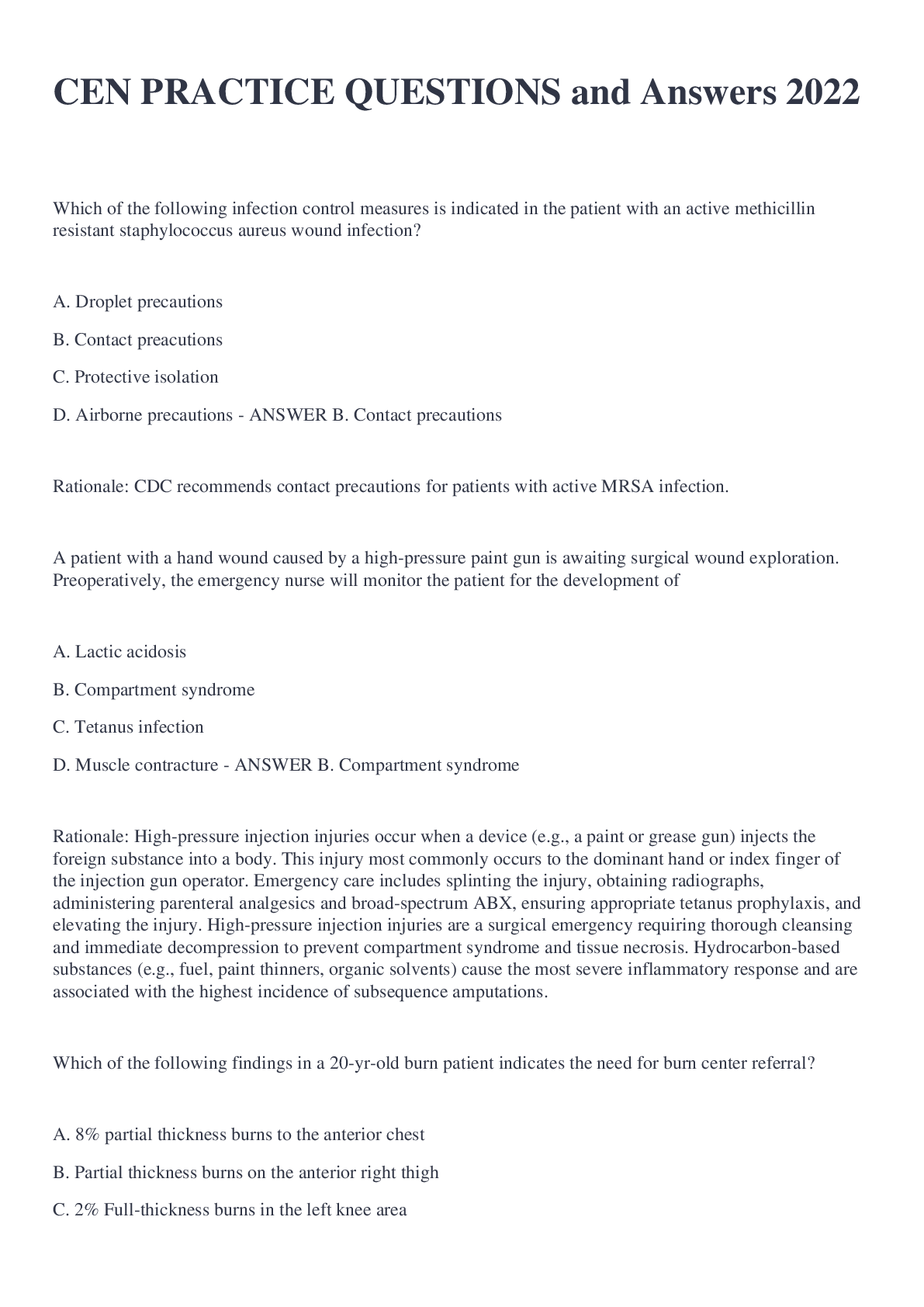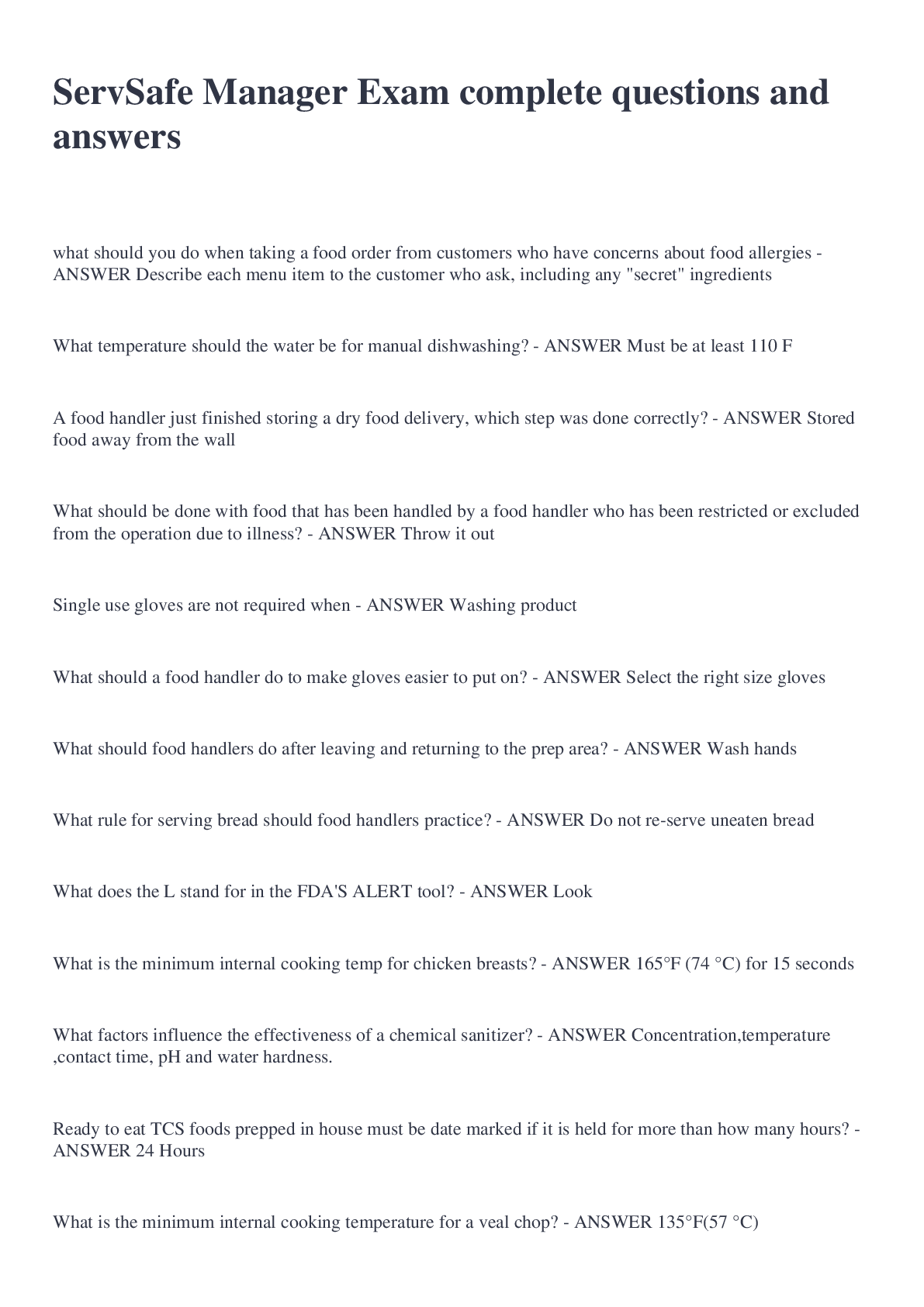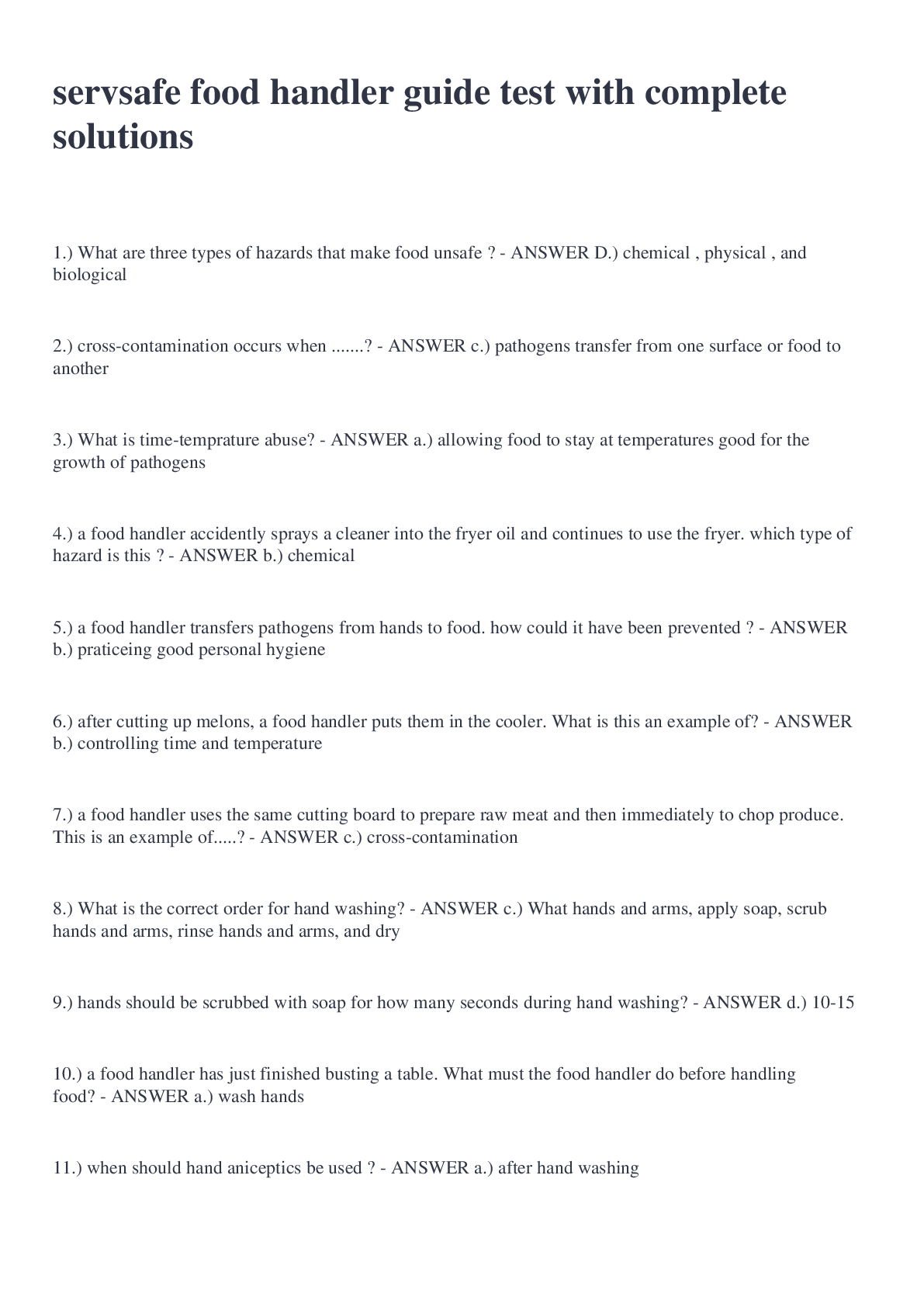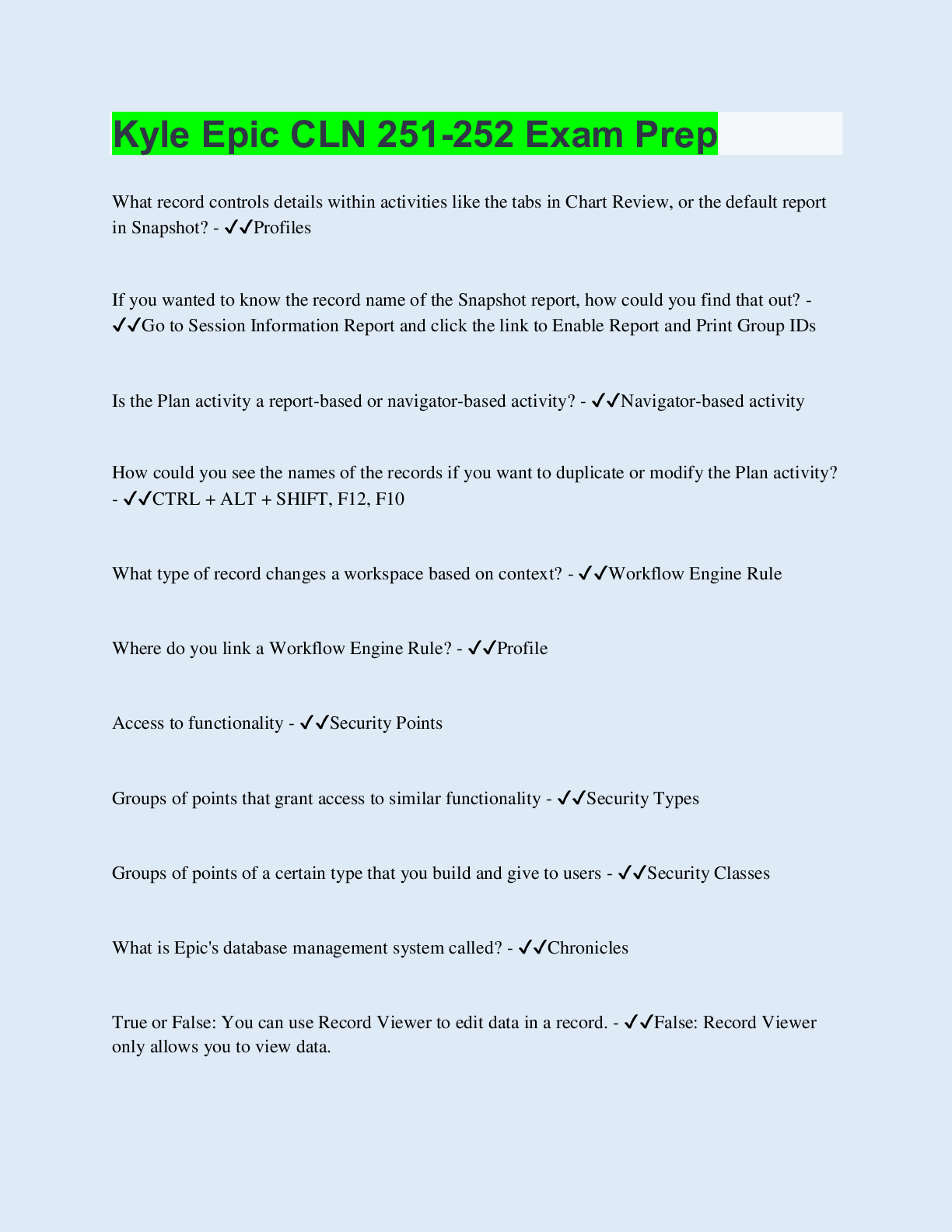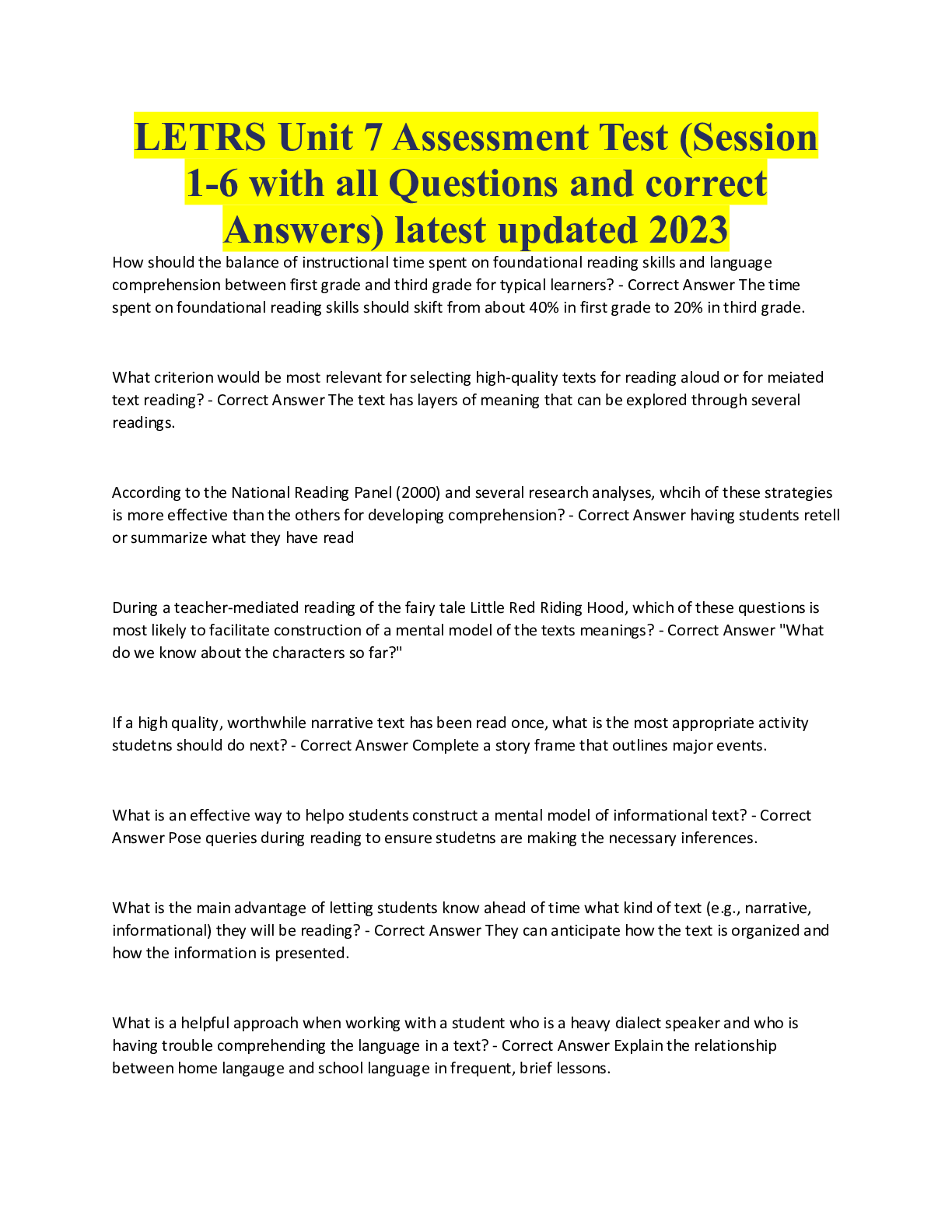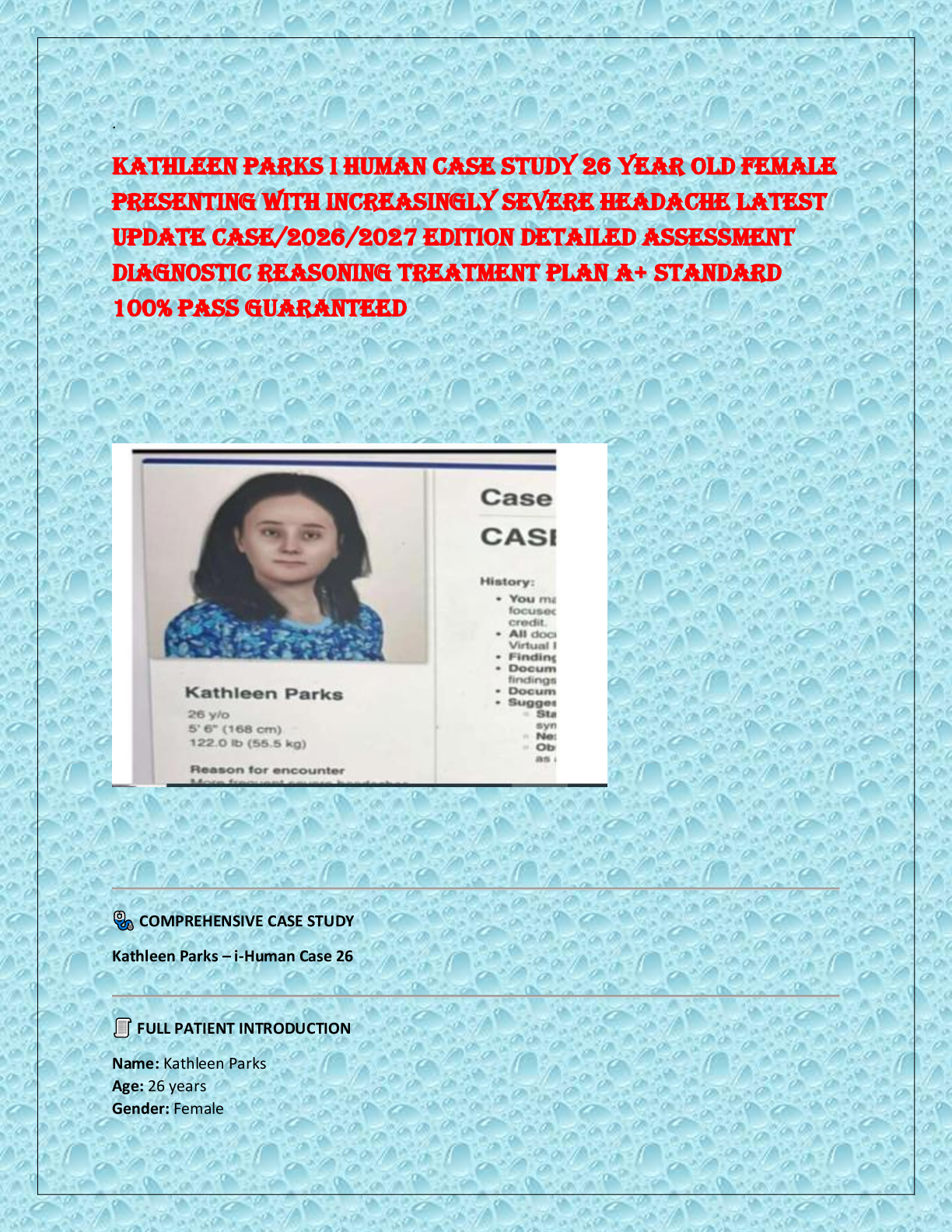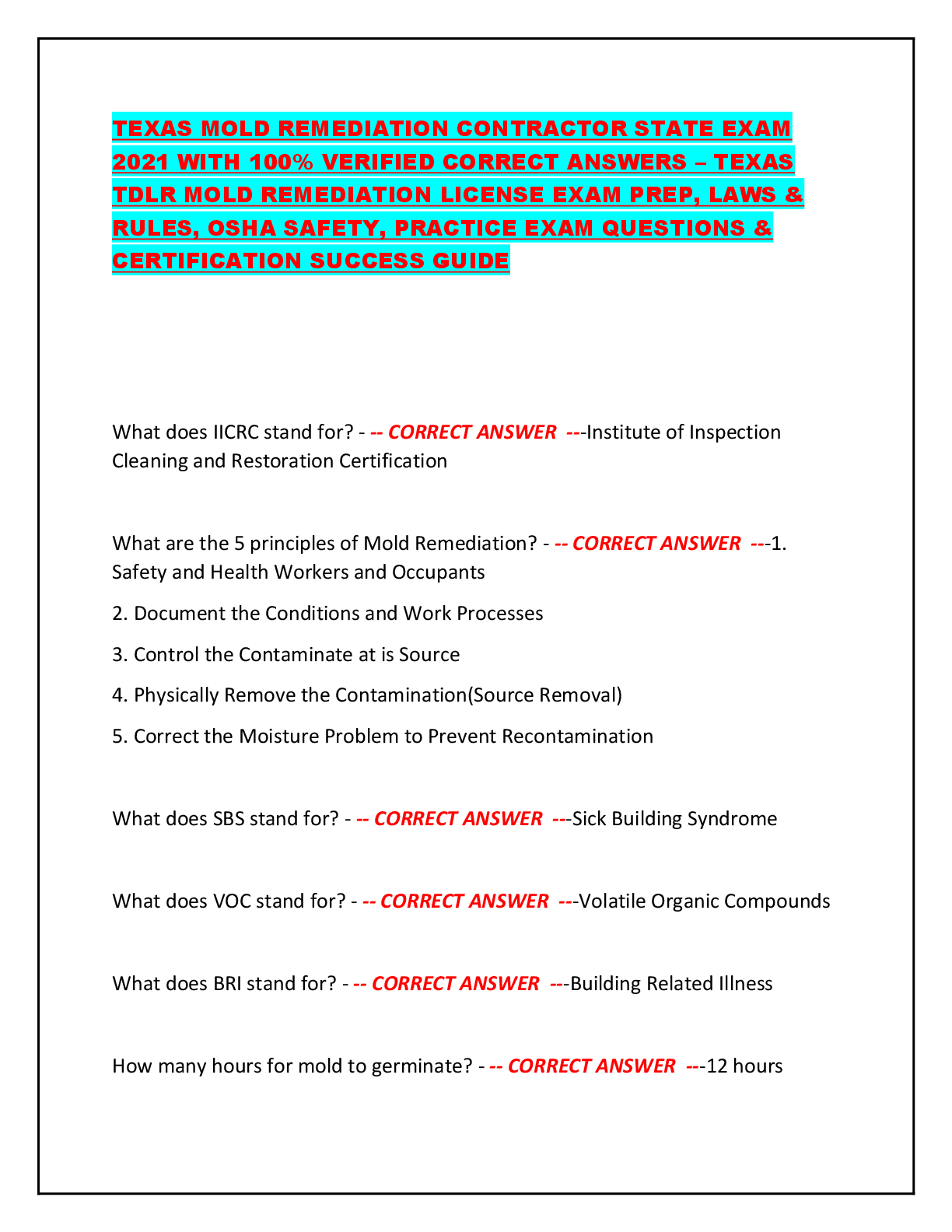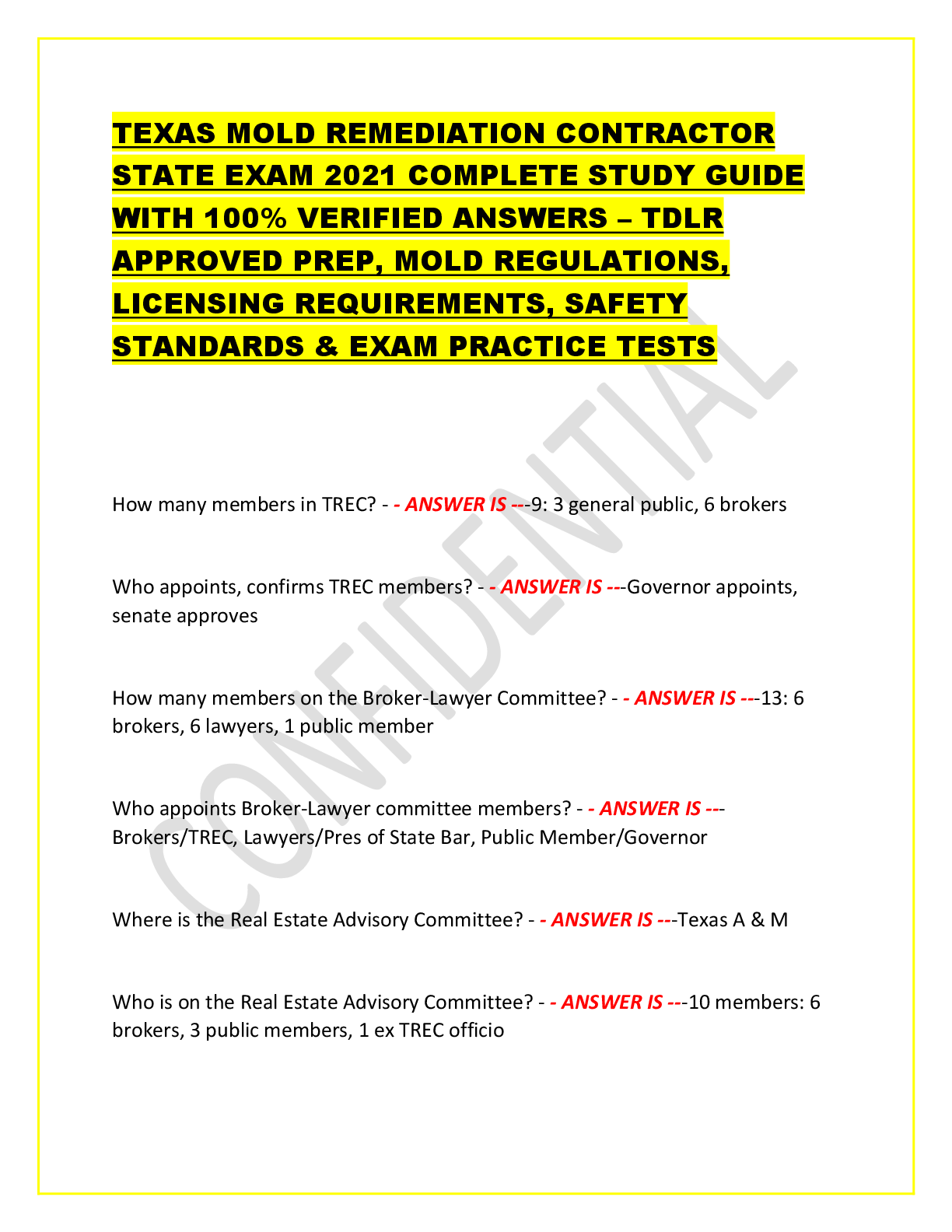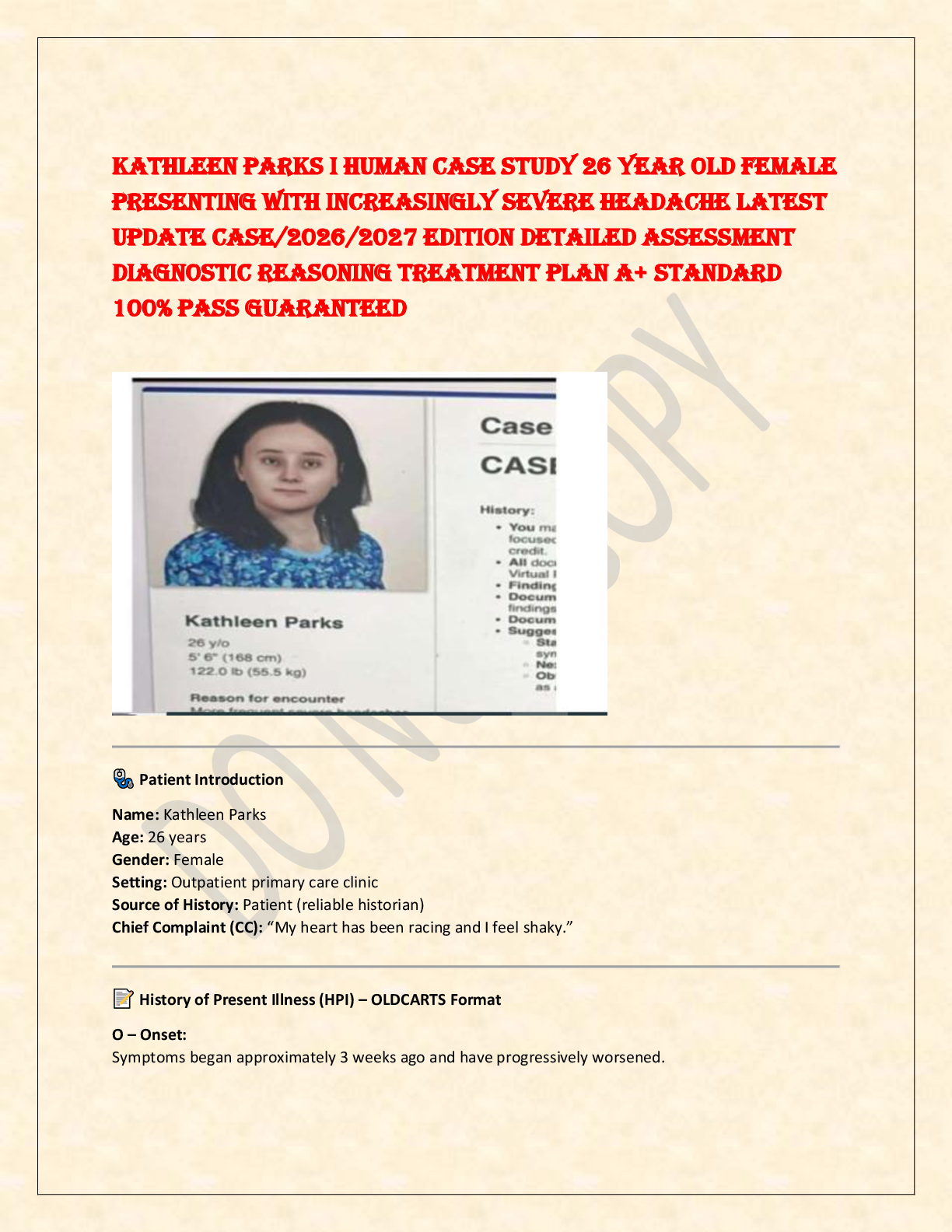Values - ANSWER Enduring beliefs or attitudes about the worth of a person, object, idea, or action. People have a small number of these.
value system - ANSWER Are basic to a way of life, give direction to life, and fo
...
Values - ANSWER Enduring beliefs or attitudes about the worth of a person, object, idea, or action. People have a small number of these.
value system - ANSWER Are basic to a way of life, give direction to life, and form the basis of behavior- especially behavior that is based on decisions or choices. Are the way by which people organize their values internally along a continuum from most important to least important?
beliefs (or opinions) - ANSWER Interpretations or conclusions that people accept as true, they are based more on faith than on fact. May last briefly. Often judged as correct or incorrect.
attitude - ANSWER Mental positions or feelings towards a person, object, or idea (e.g., acceptance, compassion, openness). Lasts over time. Judged as good or bad, positive or negative.
values transmission - ANSWER Influenced by social traditions; cultural, ethnic, and religious groups; and by family and peer groups.
professional values - ANSWER Acquired during socialization into nursing from codes of ethics, nursing experiences, teachers, and peers.
5 values essential for the professional nurse are: - ANSWER altruism, autonomy, human dignity, integrity, and social justice
values clarification - ANSWER Process by which people identify, examine, and develop their own individual values. A main principle is that no one set of values is right for everyone. Promotes personal growth by fostering awareness, empathy, and insight. An important step to take in dealing with ethical problems.
Which fundamental professional nursing values have not varied over time or across groups? - ANSWER Human dignity, equality, and prevention of suffering.
True or Fales
The nurse should never assume that the client has any particular values. - ANSWER True
What are the steps that may help clients clarify their values? - ANSWER Listing alternatives
Examining possible consequences of choices
Choosing freely
Feeling about the choice
Affirming the choice
Acting with a pattern
ethics - ANSWER -a method of inquiry that helps people understand the morality of human behavior
-the practices or beliefs of a certain group (ie, medical ethics, nursing ethics)
-the expected standards of moral behavior of a particular group as described in the group's formal code of professional ethics.
bioethics - ANSWER ethics applied to human life or health (ie, decisions about abortion or euthanasia).
nursing ethics - ANSWER refers to ethical issues that occur in nursing practice.
Scope and Standards of Practice - ANSWER A publication by the ANA (2010) which holds nurses accountable for their ethical conduct.
Professional Performance Standard 7 - ANSWER -Of the ANA Scope and Standards of Practice publication relates to ethics.
-The current edition of this standard was significantly expanded to include greater emphasis on nurse advocacy and professional responsibility.
morality (or morals) - ANSWER -similar to ethics, many use the terms interchangeably
-refers to private, personal standards of what is right and wrong in conduct, character, and attitude.
It is important for a nurse to distinguish between.... - ANSWER morality and law
-laws reflect moral values of a society, however, an action can be legal but not moral.
-action can be moral but illegal.
morality and religion (as they relate to health practices)
moral development - ANSWER The process of learning to tell the difference between right and wrong and of learning what should and should not be done. Is a complex process that begins in childhood and continues throughout life?
Lawrence Kohlberg (1969) and Carol Gilligan (1982) - ANSWER Two well-known theorists of moral development.
What is the difference between Kohlberg and Gilligan's theory? - ANSWER Kohlberg's theory emphasizes rights and formal reasoning;
Gilligan's emphasizes care and responsibility, although it points out that people use the concepts of both theorists in their moral reasoning.
What factors differentiate the three main types of moral theories? - ANSWER Their emphasis on: a) consequences, b) principles and duties, c) relationships
[Show More]
